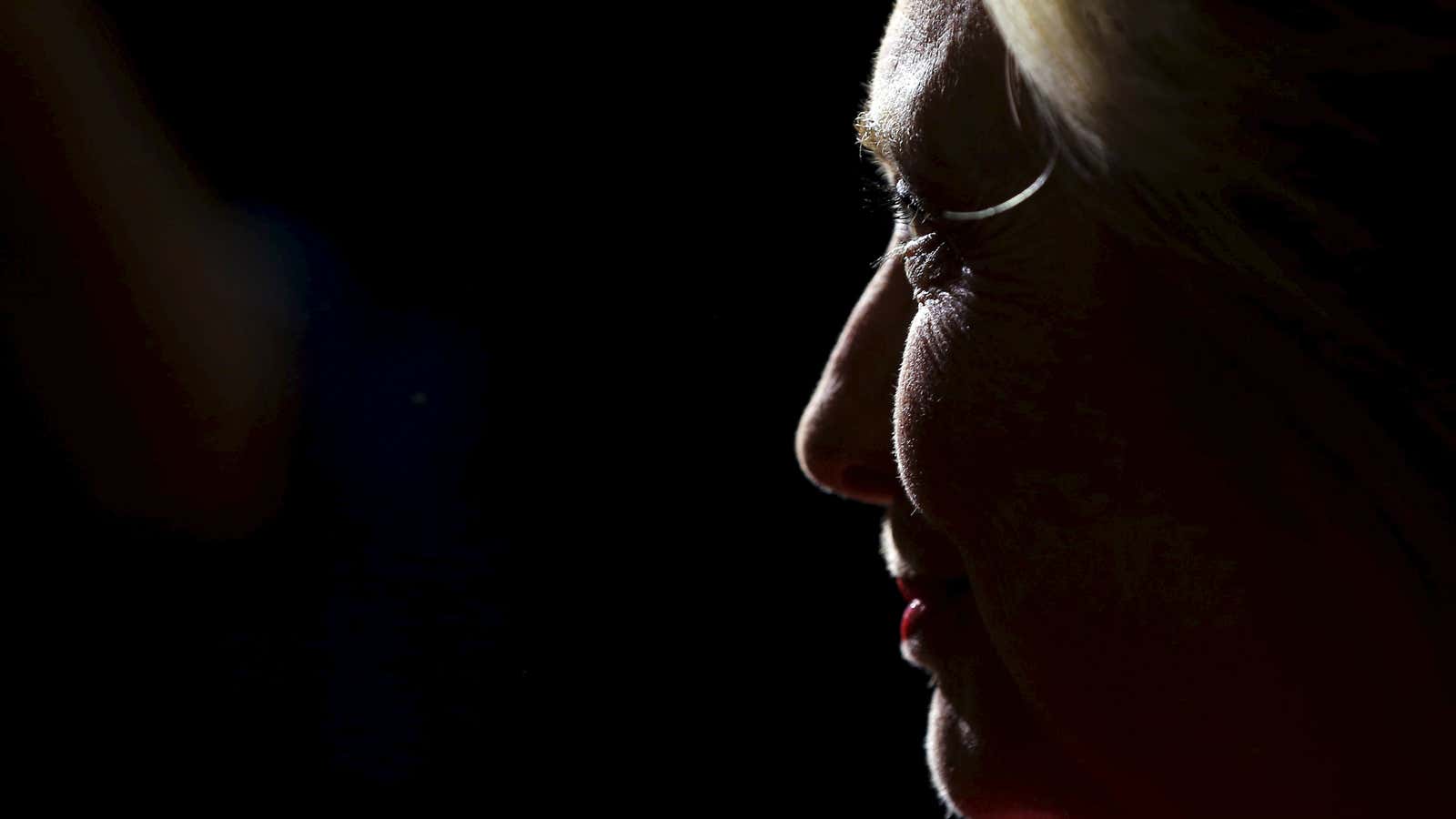In January 2008, then-US senator Barack Obama, coming off a surprise victory in the Iowa caucus, lost his next primary in the race for the Democratic nomination. As he conceded the New Hampshire primary to Hillary Clinton, he made a polished, 13-minute speech in which he sounded much more like the victor. The rousing “Yes we can” speech, as it came to be known, arguably cemented Obama’s path to the White House.
Almost eight years later, Clinton has just experienced what could be a similarly defining moment, though in a much different setting—an off-stage, unscripted conversation on Aug. 11 with two activists from the Black Lives Matter (BLM) movement. The encounter was videotaped and released by BLM. Below is an edited version (here’s the uncut video).
It’s an emotionally charged, 16-minute encounter, in which Clinton—put on the spot in a setting that could throw off even the most skilled politician—shines with both respectful empathy and surprisingly tough love.
“Your analysis is totally fair,” she says at one point. “It is historically fair, it’s psychologically fair, it’s economically fair.”
But when BLM activist Julius Jones accuses Clinton of asking the movement “to change white hearts,” she is not rattled, and quickly interrupts him: ”I don’t believe you change hearts—you change laws.”
Perhaps distracted by her emailing crisis, Clinton’s campaign doesn’t seem to be making much of the display of impressive political nuance, along with an engaging personal touch not often associated with her.
And some critics and independent political observers seem less than impressed. New York Times columnist Charles Blow found Clinton “agile and evasive.” Vox faulted Clinton for being reflexively pragmatic. And a New Republic writer said Clinton “clearly believes in a system with built-in racial bias and inequality.”
As for BLM itself, Jones and Daunasia Yancy—the activists who spoke with Clinton—were happy with how much time they got with the candidate, but were otherwise less impressed. Jones’ main message was sharp-edged: “If you don’t tell black people what we need to do, then we won’t tell you what you need to do.” Clinton didn’t rise to the challenge, and instead again pushed back with pragmatics. Jones hated that while she acknowledged that laws enacted during her husband’s presidency have disproportionately hurt black Americans, she fought to keep the focus on the best way to rectify past sins.
What the commentators and the BLM activists are missing is that they aren’t the important audience. It’s the Democratic base, especially ambivalent and indifferent liberals, who may get fired up by Clinton’s performance. As evidence of this potential, there are few more venues more reliably Democratic than the comments section of the New York Times, where most of 700-plus comments lauded Clinton’s response.
Here is reader “mh12987”: “For the love of God, please tell [Clinton’s] handlers to let us see more of this! This was a very difficult, potentially explosive conversation that she handled masterfully, showing her full range of skills—staunch advocate, patient listener, skilled politician and diplomat. Lesser candidates than she would have found themselves out of the race after an exchange like this, but she shines in it.”
One can only conjecture how some of her potential rivals for office—the savvy Jeb Bush, say, or Donald Trump—would have handled the same situation. But what does seem certain is that moments like this make a Hillary Clinton victory very easy to imagine.
